- Home
- Military & Defense
- Here are the most likely candidates to replace Iran's ailing Supreme Leader
Here are the most likely candidates to replace Iran's ailing Supreme Leader
Ayatollah Mohammad Yazdi

Ayatollah Mahmoud Shahroudi
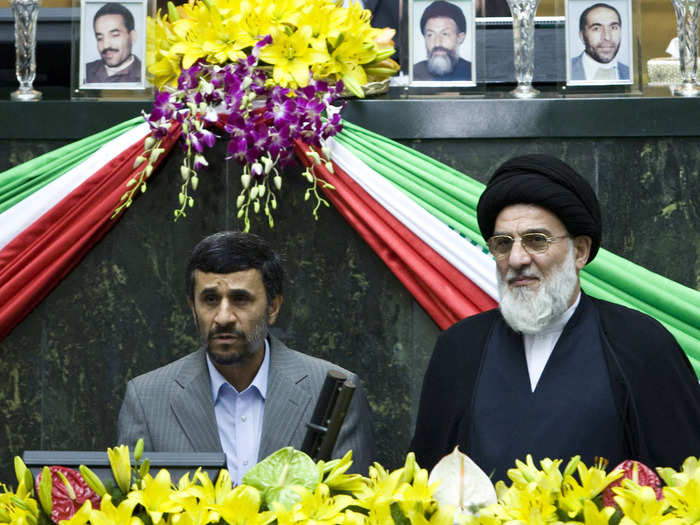
Ayatollah Mahmoud Shahroudi, 66, has a similar pedigree to Yazdi. Alfoneh notes that Shahroudi is also a former head of the Iranian judiciary, and was recently elected the deputy of the Assembly of Experts below Yazdi.
In an email to Business Insider, Alfoneh said that Shahroudi is one of the candidates for Supreme Leader that could count on the support of the IRGC.
According to Haaretz, Shahroudi was born in Iraq. He is considered to be a conservative with views in line with the majority of Khamenei's rulings. Alfoneh notes that Iraqi-born Iranians such as Shahroudi are over-represented in the country's intelligence services. Although observers have long wondered whether Khamenei himself would ever sign on a comprehensive nuclear deal, on March 10 Shahroudi came out in support of a potential nuclear agreement between Iran and the West.
Ayatollah Sadeq Larijani
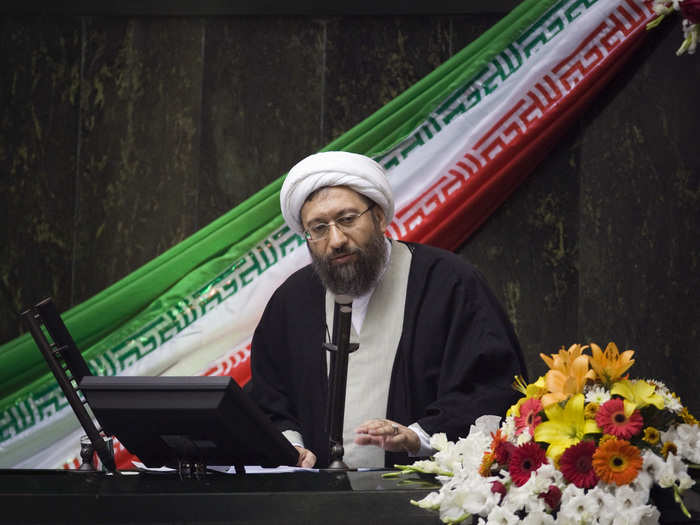
Ayatollah Sadeq Larijani, 53, is a dark horse candidate, according to Alfoneh's policy brief. Larijani is the current head of the judiciary, and like Shahroudi he is also originally from Iraq. Should Larijani be elected as the next Supreme Leader, he is likely to follow the overall policies of Khamenei and continue to patronize the IRGC.
According to an analysis by Mehdi Khalaji of the Washington Institute, Larijani is seen as inexperienced and lacking in religious credentials within Iran. However, he has overcome these criticisms through unwavering support for the Supreme Leader and the religious regime.
Larijani was the youngest cleric ever to be appointed to Iran's Guardian Council, the supervisory body that oversees all laws passed by Iran's parliament. It can also vet political candidates.
Hassan Khomeini
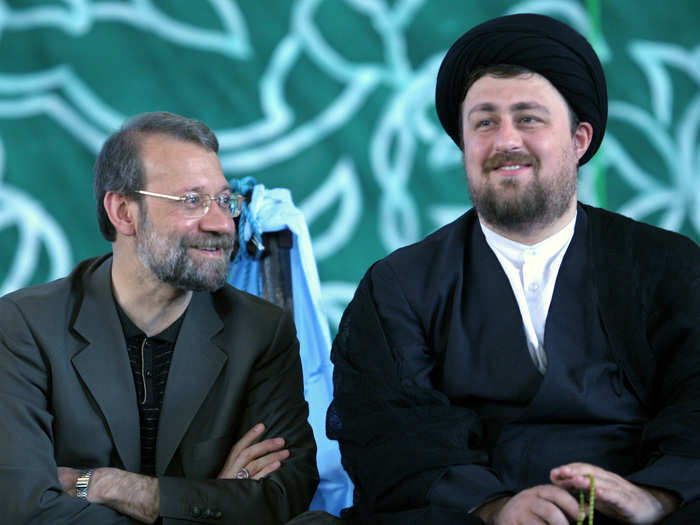
Hassan Khomeini, 42, is a grandson of ayatollah Ruhollah Khomeini, the founder of the Islamic Republic. Alfoneh notes that despite his age, Khomeini could serve as the main candidate for the pragmatist political order represented by Rafsanjani and Iranian President Hassan Rouhani.
If chosen, Khomeini would likely attempt to liberalize the economy and engage with the West while conserving the regime and upholding Khamenei's internal security policies.
Al-Monitor notes that Khomeini is well liked by younger Iranians given his charisma and his stated love of European soccer. Khomeini also has connections to both the conservative IRGC and the reformist members of the Green Movement.
Ayatollah Akbar Hashemi Rafsanjani
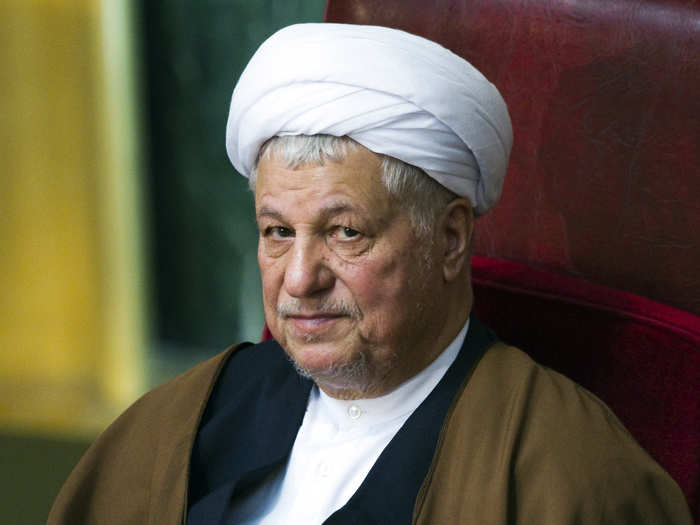
Akbar Hashemi Rafsanjani is one of the most prominent politicians in Iran. He was a close associate of Khomeini during the Islamic Revolution and he played a key role in maneuvering the at-the-time unproven Khamenei into the position of Supreme Leader following Khomeini's death.
Rafsanjani has held roles ranging from parliament speaker to president to commander of the military during the Iran-Iraq war.
Rafsanjani is currently the head of Iran's Expediency Discernment Council, which largely acts as an advisory body for the Supreme Leader — although he also lost to Yazdi in the election to lead the Assembly of Experts. Haaretz notes that Rafsanjani tends towards a slightly reformist position, while according to Alfoneh he lost sway in the upper echelons of Iran's government because of his possible sympathies towards Iran's Green Movement in 2009.
Ayatollah Mohammad Taghi Mesbah Yazdi
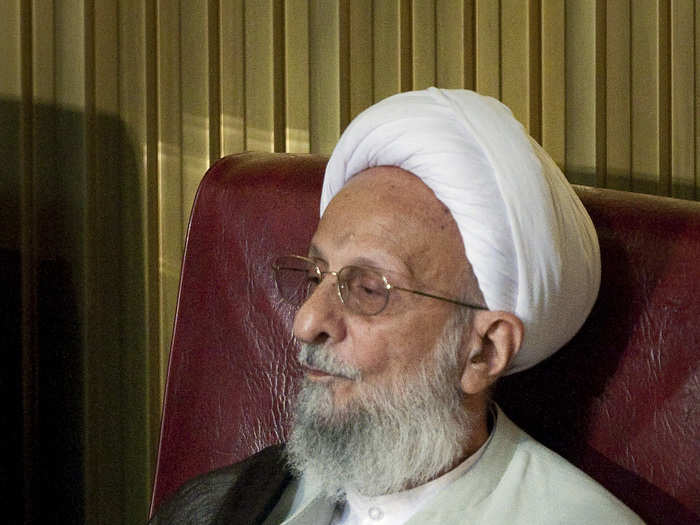
Not to be confused with Ayatollah Mohammad Yazdi, Haaretz also projects Ayatollah Mohammad Taghi Mesbah Yazdi as a candidate as the next Supreme Leader. Mesbah Yazdi, 81, is a hardline cleric who is considered a radical conservative. His extreme positions often alienate both reformers and more pragmatic conservatives.
Alfoneh told Business Insider that Mesbah Yazdi "has no chance of running for Leader."
Mojtaba Khamenei
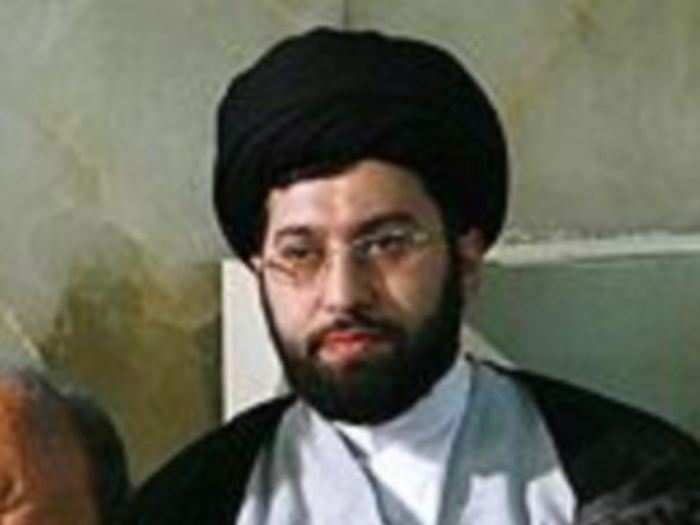
Mojtaba Khamenei, 45, is the second son of the current Supreme Leader. Although Khamenei is not a likely candidate due to his young age and lack of experience, he possesses many political contacts that could serve his appointment, Haaretz reports. Khamenei has especially close connections to the IRGC and he reportedly is involved in a number of the Guard's business dealings.
However, Alfoneh told Business Insider that "the story of Ali Khamenei grooming his son for succeeding him has no basis in reality."
Rafsanjani's idea of a "leadership council"
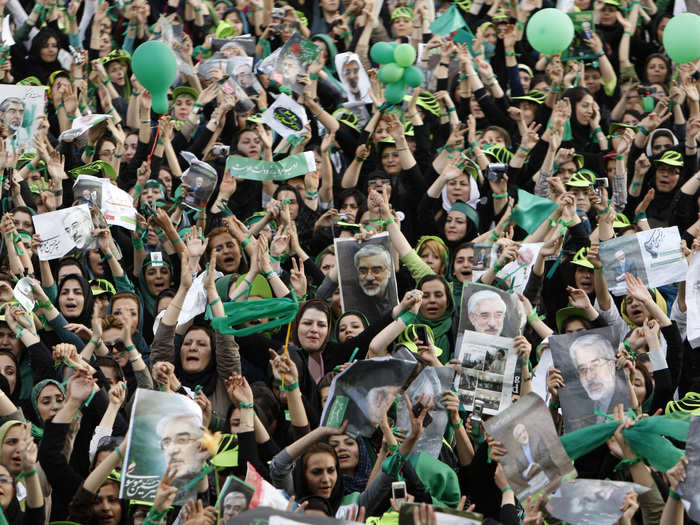
During the Green Movement which erupted in response to allegedly fraudulent Iranian presidential elections in 2009, Rafsanjani reportedly pushed for replacing the office of Supreme Leader with a "leadership council," according to Alfoneh.
This idea would have installed a group of at least three ayatollahs in a position of ultimate national authority in an attempt to prevent one individual from amassing total control.
Eurasianet reports that the idea of a leadership council could gain support from within large segments of the reformist wing of Iran's clerical establishment. Iraq's top Shi'a cleric, Grand Ayatollah Ali al-Sistani, is also reportedly in favor of Iran forming a leadership council. The creation of such a council would be a radical political development for Iran and isn't viewed as terribly likely.
The IRGC seize power
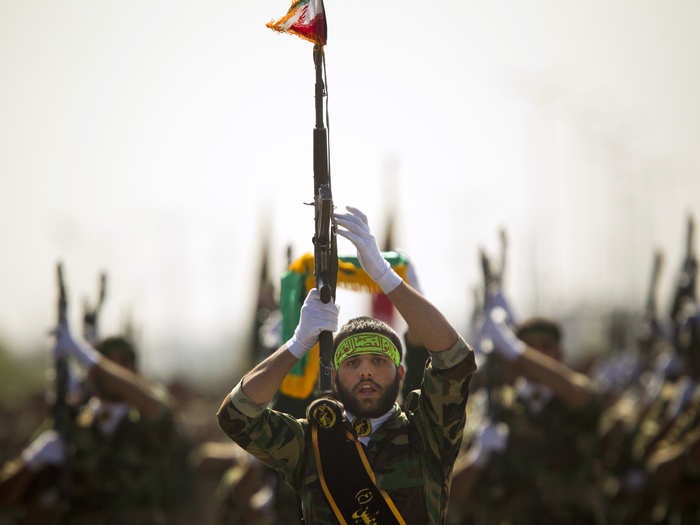
The most unlikely of the possible scenarios following Khamenei's death is the IRGC seizing power.
During Khamenei's tenure, the IRGC has evolved into an extremely powerful organization with considerable internal political sway.
Khamenei has also militarized the clerical establishment to the detriment of traditional religious leaders, leading to a convergence of the "judiciary, the IRGC, and the intelligence agencies," according to the Washington Institute.
"The most radical scenario is abolishing the institution and direct IRGC seizure of power which I don't think will happen," Alfoneh told BI. "The IRGC is more likely to support Mohammad Yazdi, Shahroudi, or Larijani in order to avoid Rafsanjani or Hassan Khomeini."
You've seen the possible candidates for Iran's next supreme leader ...
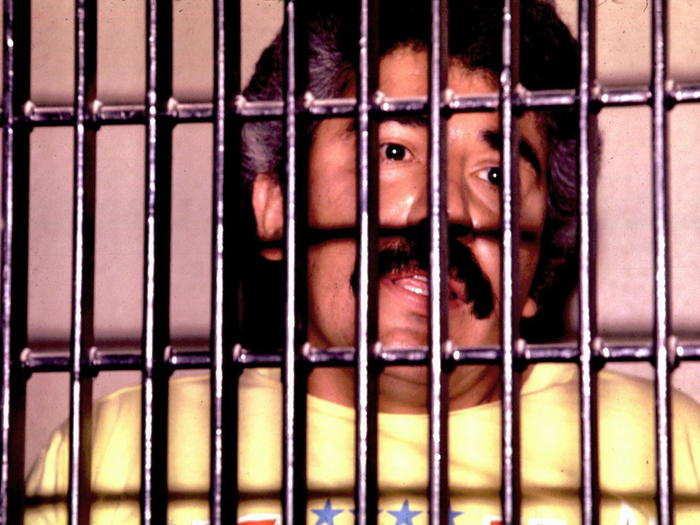
Popular Right Now
Advertisement